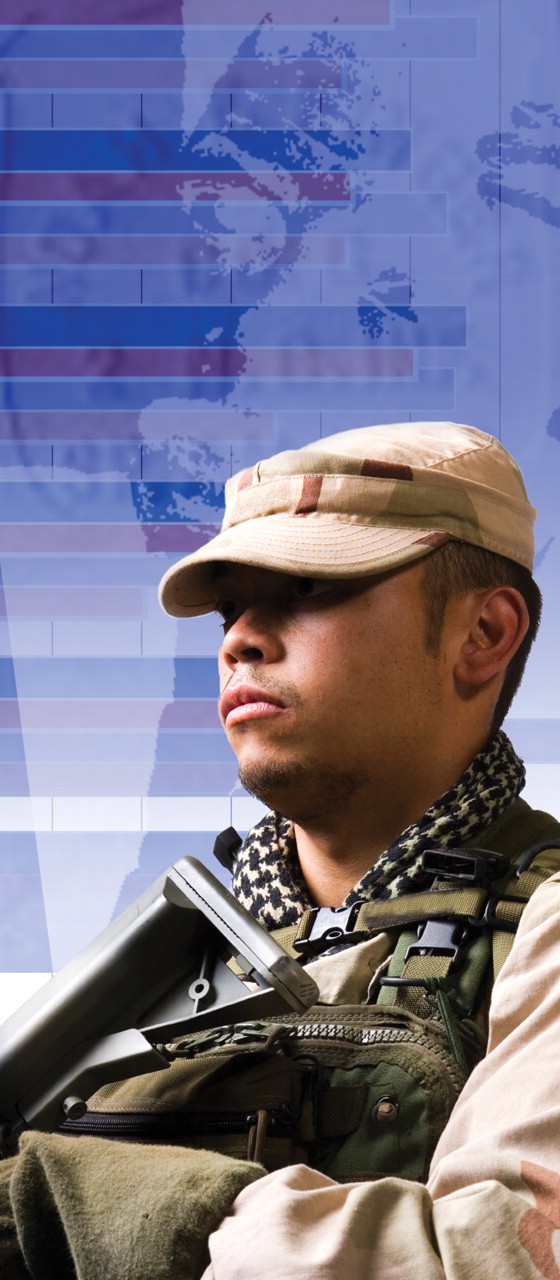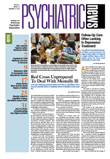U.S. Army soldiers returning from duty in Iraq demonstrate a range of neuropsychological changes related to their deployment to the war zone, according to a study supported by the Army and the Department of Veterans Affairs.
Compared with troops who did not go overseas during the same time, soldiers who served in Iraq performed worse on tests of sustained attention, verbal learning, and visual-spatial memory and recorded higher measures of confusion and tension. In contrast, deployment was associated with improved reaction time, wrote Jennifer Vasterling, Ph.D., and five colleagues in the August 2 Journal of the American Medical Association. The study is the first such evaluation of troops before and shortly after war service, according to an accompanying editorial.
“The degree of change was subtle, but the pattern is not unexpected for the biological response to extreme stress,” said Vasterling in an interview. She is a senior investigator at the New Orleans site of the VA South Central Mental Illness Research, Education, and Clinical Center and a clinical professor of psychiatry and neurology at Tulane University School of Medicine.
The changes represent a mental frame-work that is adaptive while on duty in Iraq but less so upon a soldier's return to the United States, said Vasterling. “After a year in an extraordinary situation, it takes a while to make the transition from a war zone to life at home.”
The study administered 16 neuropsychological tests to 654 male and female active-duty Army soldiers before they left for Iraq and again after they returned. Serving as controls were 307 soldiers with similar military characteristics. The two groups were matched unit by unit reflecting combat, combat support, and combat service functions. Individual soldiers were drawn randomly by picking every third name from unit rosters.
The researchers tried to minimize confounding effects of pre-existing variables by examining the same individuals before and after deployment, not just statistically matched groups, said Vasterling. Deployed soldiers served 12 months in Iraq and were retested a mean 73 days after their return. The control group was retested at a similar time after their baseline testing, to eliminate any differences caused by the passage of time alone.
Deployment was undeniably stressful. Nearly all the soldiers in Iraq (98 percent) came under enemy fire, 55 percent saw comrades killed or wounded, and 77 percent saw Iraqi homes or villages destroyed. About 14 percent of these troops said they were injured or wounded in combat, including 7.6 percent who had serious head injuries (compared with 3.9 percent of the nondeployed troops), but concussive injury had no effect on outcomes. About 25 percent scored above cutoff levels for depression symptoms, and 11.6 percent screened positive for likely posttraumatic stress disorder, wrote the researchers, although “emotional symptoms did not fully account for associations between deployment status and neurobehavioral outcomes.”
The neuropsychological tests of cognition, memory, learning, attention, and reaction time that Vasterling used differ from the Department of Defense's standard Postdeployment health assessment, which is used to screen all troops returning from overseas assignments (Psychiatric News, April 7). The latter uses self-reports to reveal emotional or psychiatric disorders indicating the need for referral and treatment, while the new study employed performance-based indications of brain health.
“This gets us out of a subjective mode and into objective measurement,” said Vasterling. The project's strict confidentiality also helped encourage honest answers from soldiers, since individual results were not shared with physicians or commanders, she said.
The results show that humans under stress have limited cognitive resources and attempt to prioritize them to survive, but the study says more about adjustment than treatment of pathology, she said.
“[T]he effect represents a minor change for the population as a whole rather than significant impairments in a few,” wrote Matthew Hotopf, Ph.D., of the Institute of Psychiatry at King's College London, and Simon Wessely, F.Med.Sci., of the King's Center for Military Health Research in London, in an editorial in JAMA.
Clinicians should pay attention to cognitive complaints of returned soldiers even if medical workups don't reveal problems that rise to diagnostic levels, said Vasterling.
“I think soldiers and their families should not be alarmed if these cognitive changes crop up as troops get readjusted to home,” she said.“ But if they still occur after months and months, they may be cause for additional referral and services.”
Vasterling and her team would like to know whether the symptoms they describe are transient following deployment or are persistent. They are completing a one-year follow-up study of the subjects, and she expects to submit a report on their findings for publication next spring.

